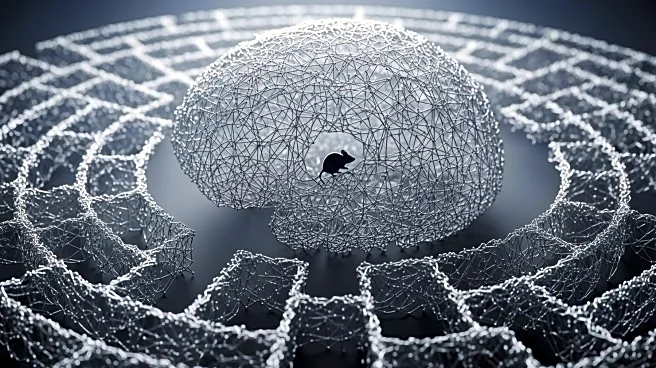What is the story about?
What's Happening?
Scientists have successfully reversed Alzheimer's disease in mice using a novel nanotechnology approach, as reported in Signal Transduction and Targeted Therapy. The research team, led by Giuseppe Battaglia, developed nanoparticles that mimic the LRP1 protein, which plays a role in the brain's blood-brain barrier. By restoring the barrier's function, the treatment cleared amyloid-beta proteins, which are associated with Alzheimer's, from the brain. The study involved genetically engineered mice exhibiting Alzheimer's-like symptoms, and after receiving three injections of the nanoparticles, the mice showed significant cognitive improvement over six months.
Why It's Important?
This breakthrough offers hope for developing effective treatments for Alzheimer's disease, a condition affecting millions worldwide. By targeting the blood-brain barrier, the researchers have identified a potential method to halt or reverse the progression of Alzheimer's, which could lead to significant advancements in dementia treatment. If successful in humans, this approach could improve the quality of life for patients and reduce the burden on healthcare systems. The study also highlights the potential of nanotechnology in addressing complex neurological disorders.
What's Next?
While the results in mice are promising, further research is needed to determine the treatment's safety and efficacy in humans. Clinical trials will be necessary to assess the potential for translating this approach into a viable therapy for Alzheimer's patients. The scientific community will likely focus on refining the nanoparticle technology and exploring its applications in other neurodegenerative diseases. Continued collaboration between researchers and healthcare providers will be crucial in advancing this promising line of research.















